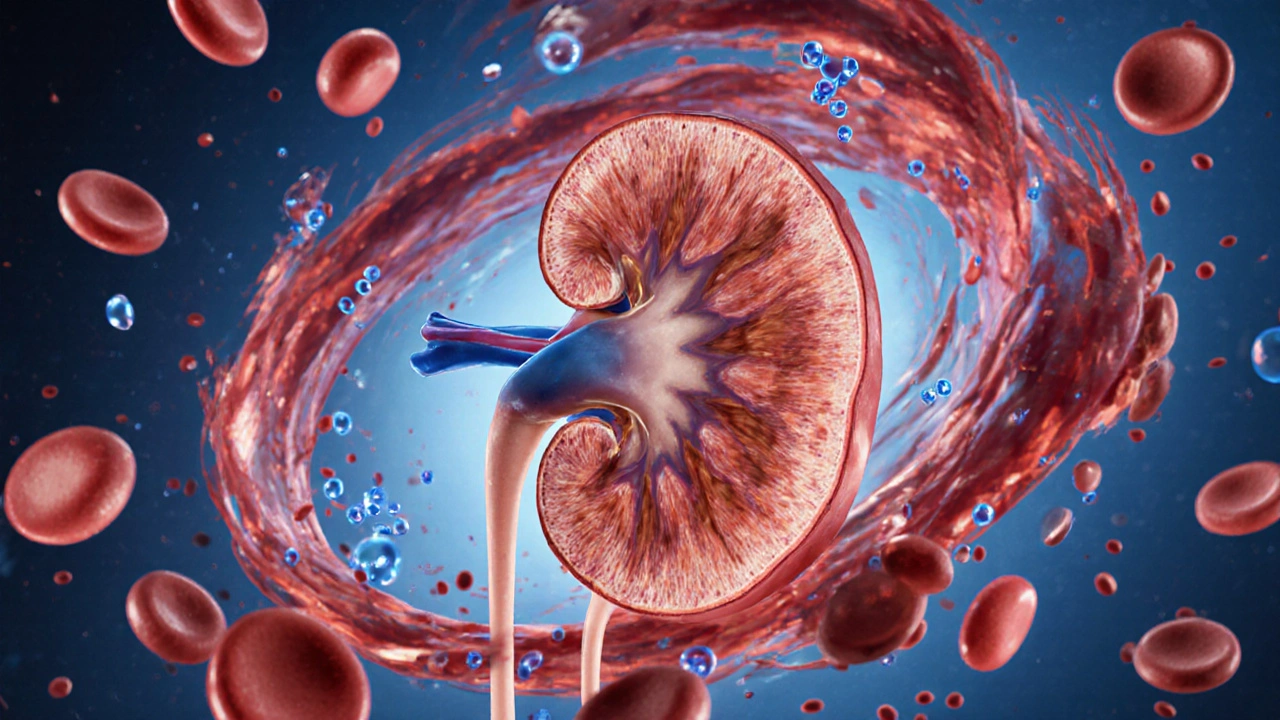Renal Function: Understanding Kidney Health and Medication Impacts
When talking about renal function, the ability of the kidneys to filter waste, balance fluids, and regulate electrolytes. Also known as kidney performance, it is a vital sign of overall health. A simple way to gauge it is the glomerular filtration rate, a numeric measure of how much blood the kidneys clean each minute. If the GFR drops, doctors often label the condition as kidney disease, any disorder that impairs the kidneys' filtering ability. Knowing these basics helps you spot why certain drugs, especially nephrotoxic drugs, medications that can damage kidney cells, matter when you’re reviewing a prescription.
Renal function doesn’t live in a vacuum; it’s tightly linked to other body systems. Diabetes medicines like dapagliflozin (brand Forxiga) are prized for lowering blood sugar, yet they also affect how the kidneys excrete glucose, which can shift GFR numbers. Antibiotics such as Augmentin carry a small risk of worsening kidney filtration in vulnerable patients. Even over‑the‑counter supplements, like high‑dose vitamin D, can tip calcium balances and put extra strain on renal pathways. In practice, clinicians check labs—creatinine, BUN, electrolytes—to see if a drug is safe before they write it. If renal function is already compromised, they may adjust doses or pick a different class entirely.
When Renal Function Declines: Treatment Options and Lifestyle Tweaks
The moment GFR slides below a critical threshold, treatment pathways diverge. Some patients start dialysis, a mechanical process that mimics kidney filtration to keep waste out of the blood. Others may benefit from dietary changes—reducing sodium, limiting protein spikes, and staying hydrated—to ease the kidneys' workload. Blood pressure control is another cornerstone; drugs like ACE inhibitors protect kidney vessels while lowering systemic pressure. If you’re on a medication known for renal side effects, ask your doctor about monitoring schedules; early detection of a rising creatinine level can prevent permanent damage.
All these pieces—GFR testing, awareness of nephrotoxic agents, dialysis options, and lifestyle measures—form a web that defines renal health. Below you’ll find a curated collection of articles that break down specific drugs, compare treatment choices, and offer practical advice for anyone needing to understand how their kidneys are doing. Whether you’re a patient, caregiver, or health‑savvy reader, the posts will give you actionable insights to manage renal function effectively.

Anemia and Kidney Health: How Nutritional Deficiencies Affect Renal Function
Learn how iron, B12, and folate deficiencies trigger anemia, worsen kidney function, and what diet and supplements can help protect renal health.
Read More